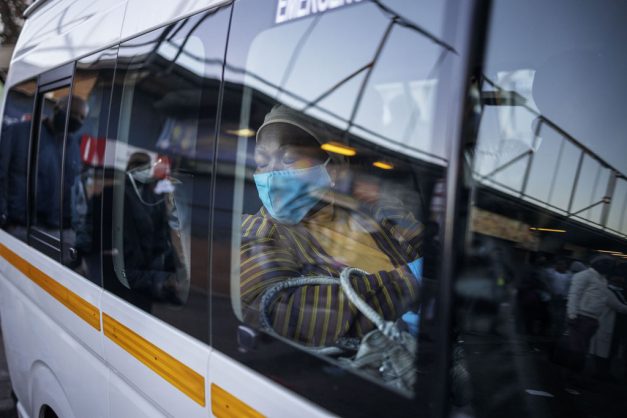
Did we really need the hard lockdown? Experts disagree
Discovery Health says 16,000 deaths averted by imposition of restrictions.
by Sipho MabenaIn an unprecedented occurrence as in the Covid-19 pandemic, with no previous data, experts have agreed that it was impossible to quantify the lives saved as a result of the hard lockdown, but believe it helped curb the spread. According to Discovery Health’s analysis, the government’s swift action in imposing a hard lockdown within weeks of SA’s first coronavirus case will have averted 16 000 deaths by the end of the year. But Pandemic Data and Analytics (Panda) has questioned the wisdom on the lockdown to stem the tide of Covid-19 and has maintained that “nowhere in the world has...
In an unprecedented occurrence as in the Covid-19 pandemic, with no previous data, experts have agreed that it was impossible to quantify the lives saved as a result of the hard lockdown, but believe it helped curb the spread.
According to Discovery Health’s analysis, the government’s swift action in imposing a hard lockdown within weeks of SA’s first coronavirus case will have averted 16 000 deaths by the end of the year.
But Pandemic Data and Analytics (Panda) has questioned the wisdom on the lockdown to stem the tide of Covid-19 and has maintained that “nowhere in the world has the lockdown shown to change the pandemic curve in any way”.
A recent analysis by Lancet researchers found that full lockdowns and widespread Covid-19 testing were not associated with reductions in the number of critical cases or overall mortality.
In their study, an increasing number of days to border closures was associated with a higher caseload and more restrictive public health measures – such as a full lockdown compared to partial or curfew only measures – were associated with an increase in the number of recovered cases per million population.
“The findings suggest more restrictive public health practices may indeed be associated with less transmission and better outcomes,” the researchers noted.
Professor Glenda Davison, head of the biomedical sciences department at Cape Peninsula University of Technology and honorary senior lecturer at the University of Cape Town, believes that the lockdown did save lives.
She said because the lockdown delayed the onset of the infections, SA was able to build field hospitals, employ more healthcare workers, and obtain the necessary equipment,” she said.
“While I agree with Panda in that viruses will spread no matter what we do, the lockdown was able to delay it, giving us time to prepare and so save lives.”
Dr Atiya Mosam, a public health medicine specialist, said it was important to understand that in an unprecedented situation like this, there was no previous data to draw on in order to make conclusions.
“We take what we know from science, from medicine and from social science and we model scenarios which may give us some glimpse of how the pandemic will play out. We act based on those.”
Dr Shakira Choonara, an independent public health practitioner, said there was no immediate evidence to show lockdown was the right way to go.
“Sweden did not have strict lockdown. They pushed behaviour change and managed to flatten the curve, but at one point the number of deaths outpaced other Scandanavian countries.
“SA’s lockdown was imperative as we were not quite sure how things were going to pan out,” she said.
– siphom@citizen.co.za